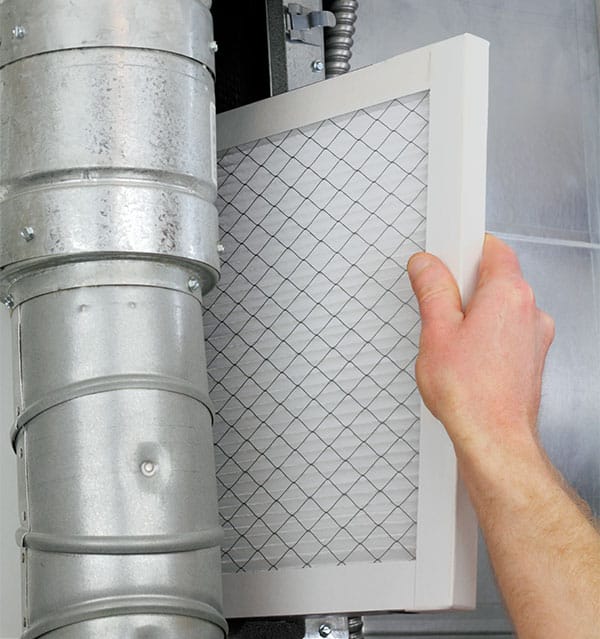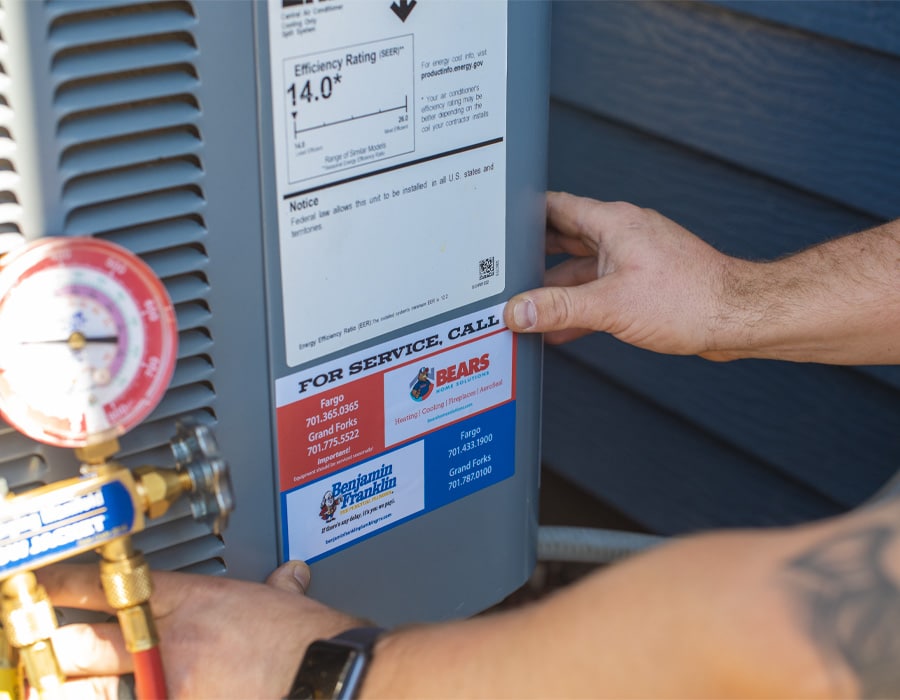Indoor air quality, or IAQ, refers to the quality of the air in a home, school, office, or other building environment. Because Americans on average spend 90 percent of their time indoors, the potential impact of indoor air quality on health is noteworthy. According to the World Health Organization, household air pollution is one of the leading causes of death in the developing world.
It’s important to note that indoor pollutant levels are typically 2 to 5 times higher than outdoor levels. The quality of the air will affect the way that people perform in their everyday lives, and poor air quality can have both short- and long-term effects on human health. Continue reading to learn more about its causes and effects, and what you can do to improve the air in your home.
Indoor Air Quality Statistics
Americans spend about 93% of their time indoors.
The quality of indoor air can be 2 - 5 times more polluted than the outside air.
The EPA has ranked indoor air pollution among the top 5 environmental dangers.
Allergies, asthma, lung cancer and heart problems have been linked to poor air quality.
Short-Term and Less Severe Health Effects
While symptoms of poor indoor air quality can be broad, depending on the contaminant, they are typically mistaken for symptoms of other illness such as allergies, stress, cold, and influenza. The most common symptoms are:
- Coughing
- Sneezing
- Watery eyes
- Fatigue
- Dizziness
- Headaches
- Upper respiratory congestion
Long-Term and More Serious Health Effects
Brief exposure typically causes mild symptoms that go away when you leave the space. Long-term, repeated exposure can have significant health effects such as:
- Mood changes
- Respiratory diseases
- Cardiovascular diseases
- Neurological disorders
- Cancer
Air Pollution and Heating and Cooling Systems
Not only does poor indoor air quality have serious negative effects on human health, but it also poorly affects your home heating and cooling systems (HVAC). Particulate matter clogs up filters, builds up inside air ducts, and clings to coils and other components of your system. This ultimately affects the performance of your equipment, causing it to become less efficient, create higher costs in monthly bills and repairs, and shorten its lifespan.
Common Pollutants and Sources
There are many pollutants that circulate through our homes, but the typical pollutants of concern include:
- Biological contaminants like bacteria, viruses, mold, and dust mites
- Household products like paint, varnish, cleaning products, building materials, and cosmetic products
- Natural substances such as radon and pet dander
- Pesticides, lead, and asbestos
- Combustion sources such as tobacco, gas stoves, fireplaces, kerosene heaters, and grills that can emit carbon monoxide
What You Can Do
Indoor air quality is not something to brush under the rug. Most people at risk of these serious conditions don’t know about the harmful effects until they end up experiencing some themselves. Making the commitment to improving your air quality is the first step in preventing negative health effects. Here’s a list of some things you can do today:
- Clean your home regularly
- Let fresh air in when you can
- Change your air filters regularly (we recommend every 2 months)
- Install high-efficiency air-cleaning products
- Maintain your HVAC system


How We Can Help
The heating, ventilation, and air conditioning (HVAC) system is often called the lungs of the home for a reason. With over 40 years of experience, we understand the importance of indoor air quality and what it means for the safety and health of your family. We offer top-rated products such as high-efficiency air cleaners, germicidal UVC lamps, oxidizing UVC systems, humidifiers and dehumidifiers, and air exchangers to keep a constant flow of clean, fresh air.
- How Aeroseal Helps You Breathe Easier and Save Money
- 4 Reasons You Should Consider Cleaning Your Air Ducts
- 4 Pollutants That Cause Poor Indoor Air Quality in Your Home
- Why Balanced Humidity Levels Matter in Your Home
- Clean and Protect the Air in Your Home with an Air Purifier
- How Seasonal Maintenance Benefits Home Cooling and Heating Systems



